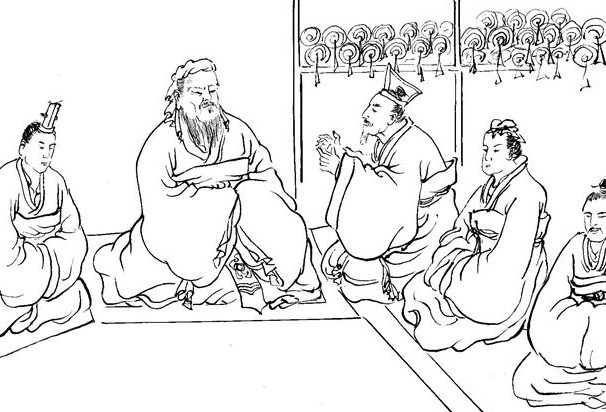ZHONG ZULIU: Academic freedom is not all, order matters too

During the Spring and Autumn period (770 to 476 BC) and the Warring States period (475 to 221 BC), various thoughts and ideas about Confucianism, Legalism, Taoism and Mohism were developed and discussed, historically known as “the Contention of a Hundred Schools of Thought.” The phrase is still used today to mean the free argument between people with different ideas in an academic field.
At present, the problems in academic evaluation can be summed up in three words: freedom, rationality and order. To elaborate, it is necessary to define the extent of academic freedom, to rationally regulate thinking and construct a reasonable order.
Above all, what is academic freedom? Pure freedom means that anyone can study any discipline he or she wishes and freely express one’s views regardless of whether they are right or wrong. But in reality, one’s personal freedom should not affect that of others. As a consequence, it is vital to be rational in pursuit of freedom to cultivate a harmonious environment for academics.
Nonetheless, our efforts have more or less fallen short of this goal. For instance, in the 21st century, there have been an increasing number of attempts to learn, translate works about and criticize Western theories. Chinese scholars have questioned many authoritative theoretical systems and are trying to propose Chinese alternatives. In the process, however, some have indulged in renaming terminology, leading to an explosion of jargon.
Furthermore, insufficient guidance regarding freedom has led to an imbalance among academics within the current framework of academic evaluation that is manifested in two aspects. First, there is disequilibrium between theory and practice. Some scholars value theory more than practice and vice versa.
Second, there is disharmony between mainstream and non-mainstream fields. Scholars have fallen over each other in their eagerness to study hot-button academic issues and paid little attention to marginal questions. The result has been mixed achievements in mainstream fields, while research on less popular fields has made little or no progress.
If researchers are not aware that freedom also has limitations and neglect rationality in pursuing freedom, it will be doubly difficult to construct a harmonious atmosphere for academics.
In addition, another thing that cannot be ignored is the rational regulation of thinking. Reasonable thinking forms part of the basis for academic achievement. And academic evaluation should have such a function through which improper thoughts can be prevented from affecting vast recipients. Academic evaluation itself is not perfect, making it harder to guide and regulate thinking.
Therefore, for the evaluation to be more reasonable and research to be more fruitful, it is significant to reflect upon the flaws in the present model and explore methods to rationally regulate thinking. In this way, academics will be unencumbered by excessive regulation and research will not be hamstrung by ignorance.
Moreover, a reasonable order is needed. Academic evaluation must guide and regulate the research trends while evaluating academic research results in order to construct a reasonable order. This shift represents a change that keeps pace with the times. It cannot be imagined what consequences there would be if academic evaluation were in a state of disorder. Of course, this does not mean that we must establish a certain single authority. It is worth noting that authority is aimed at the subjects of evaluation. It is a mentality and reflection for all researchers, while order is a kind of guidance for the subjects, which highlights the importance of order to building authority for academic evaluation.
Absolute freedom does not exist. Therefore, researchers should be rational in pursuit of freedom and aware of the significance of reasonable order for academic research and evaluation. In evaluating academic results in the future, we should not only stick to strict and scientific methods but also grasp the actual meanings of research freedom, rationally regulate thinking of scholars and emphasize order so that the evaluation can better serve academic studies, which in turn can improve the evaluation system.
Zhong Zuliu is from the College of Chinese Language and Literature at Northwest Normal University.
